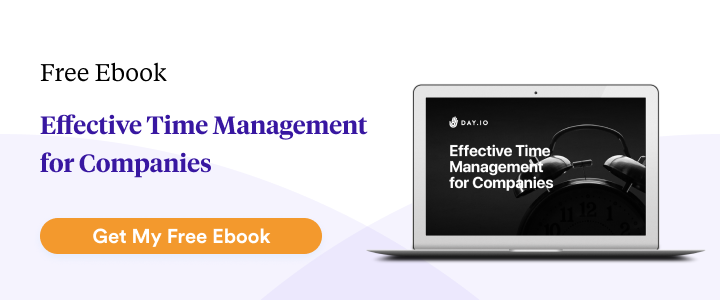Managing finances is a critical component of business success. Fortunately, the advent of accounting tools has revolutionized financial operations, transforming them from manual bookkeeping and spreadsheets to robust software solutions offering various features and functionalities.
In this article, we’ll look closer at the top 7 accounting tools to watch out for in 2023 – chosen based on user-friendliness, scalability, and value for businesses of all sizes. But what makes these solutions stand out? How can they benefit your business? And how do you pick the right one that meets your specific needs?
We’ll answer these questions and give you the information you need to make a confident decision when choosing an accounting tool for your organization.
Throughout this article, we’ll discuss:
- What Are the Top Features of Accounting Tools for Businesses?
- Benefits of Using an Accounting Software for Your Business
- How to Choose the Right Accounting Tool?
- Best 7 Business Accounting Tools in 2023
- Wrap-up: Choose the Right Account Tool to Simplify Your Business Finances

What Are the Top Features of Accounting Tools for Businesses?
Accounting tools are designed to help businesses manage their finances and improve the accuracy of financial data. The right accounting software should have features that allow you to enter, store, and analyze your data quickly and easily. Common features include:
- Invoicing & billing: One of the most critical features of an accounting tool is the ability to create invoices and bills and manage customer payments quickly. This helps ensure you get paid on time and keep track of who owes what.
- Tax preparation & filing: Another key feature is tax preparation and filing, which automates tax preparation for your business. This saves a lot of time and ensures accuracy in calculating taxes owed or refunds due.
- Financial reporting: Accounting tools also provide insights into financial performance with reports that can be used to make informed decisions about investments, budgeting, cash flow management, etc.
- Expense tracking & management: This feature allows you to track and manage expenses more efficiently. You can also set budgets and monitor spending to stay within your budget.
- Inventory tracking: If you’re running an online business, inventory tracking is a must-have feature in accounting tools. It helps keep track of stock levels, reorder points, and other inventory-related data with ease.
- Bank reconciliation & integration: Accounting tools are often integrated with banks or financial institutions, allowing for automatic reconciliation of accounts and transactions.
- Multi-currency support: If your business deals with customers and suppliers from multiple countries, then multi-currency support is a must-have feature in your accounting tool.
Benefits of Using an Accounting Software for Your Business
Accounting software offers a range of benefits for businesses of all sizes. The top benefits include:
- Automation and accuracy
- Streamlining business finances
- Increased transparency in financial operations and reporting
- Access to real-time data, insights, and analytics
- Improved collaboration among finance teams
- Reduced costs associated with manual processes
How to Choose the Right Accounting Tool?
Choosing the right accounting tool for your business is critical, as it’s an investment that will have long-term impacts on your financial operations. Here are some key considerations to make:
- Cost: Determine the cost of implementation, training, and usage. Also, factor in potential upgrades or add-ons you may need down the line.
- Features: Make sure you understand the features offered by each solution and determine which ones best meet your requirements.
- Scalability: Consider how well a solution can scale up or down with changing business needs.
- Integrations: Check that an accounting tool is compatible with other software solutions you may use in your business.
- Security: Ensure the software meets security and compliance standards to protect your financial data.
- Usability: Look for a solution that’s easy to use and understand by all users, regardless of their skill level.
Best 7 Business Accounting Tools in 2023
We’ve rounded up the top 7 accounting tools businesses should consider in 2023.
-
Day.io – Best Project and Time Tracking Tool with Business Accounting Features
While Day.io is one of the best project and time-tracking tools, it has many helpful business accounting features. With Day.io, you can easily track and manage your finances and monitor costs, cash flow, employee payments, etc. In addition to tracking expenses and invoices, the tool also allows users to set up automated reminders for deadlines or important events related to their accounts.
The time-tracking data gives you a complete picture of your project profitability. You can also use Day.io to manage payroll and generate reports on team performance or project progress.
Features
- Project and time tracking
- Business profitability tracking with real-time cost and billing analysis
- Comprehensive project reports with a breakdown of expenses
- Monitoring over extra hours worked for a seamless accounting experience
- Calculation and approval of paid time off
- Integration with leading accounting platforms like QuickBooks and Xero
- Automated time clock with fraud prevention features
- Timesheet and invoice generation
Pricing
- Project and time tracking: Starts from $6 per user/month
- Time & attendance tracking: Starts from $4 per user/month
-
FreshBooks – Most Simplified Business Accounting Platform in 2023
FreshBooks is a comprehensive web-based business accounting platform designed to help small businesses manage their finances quickly and easily.
The FreshBooks dashboard gives you a bird’s eye view of your finances at a glance with real-time invoice statuses and financial performance indicators. You can also track business expenses against budgets to make better spending decisions.
Features
- Intuitive invoicing with customizable templates
- Easy integration with other business applications
- Automatic payment reminders to reduce late payments
- Real-time financial performance indicators
- Robust expense tracking and budgeting tools
- Payroll management with direct deposit options
Pricing
- Lite: $17/month
- Plus: $30/month
- Premium: $55/month
-
Xero – Perfect for Advanced Business Users and Accountants
Xero provides real-time visibility into cash flow, profit & loss, and balance sheets. You can also use Xero to automate invoices, set up recurring payments, track expenses against budgets, generate financial reports with custom dashboards, prepare tax returns using integrated data sets, and more.
Features
- Real-time tracking of financial performance
- Integrated online payment solutions
- Automated invoice creation and management
- Automatic bank reconciliations
- Mobile app for Android and iOS devices
- Robust payroll management system
Pricing
- Early: $6.50/month
- Growing: $37/month
- Established: $70/month
-
QuickBooks – Best Business Accounting Tool for Independent Professionals
Intuit QuickBooks is one of the most popular business accounting software solutions for independent professionals. It provides a comprehensive suite of tools to help you manage your finances, including invoicing, inventory tracking, expense management, and payroll.
Features
- Easy invoice creation & payments
- Time tracking & job costing capabilities
- Inventory management system
- Integrations with popular financial services like PayPal
- Robust payroll processing
- Business insights & analytics
Pricing
- Simple Start: $17/month
- Essentials: $26/month
- Plus: $36/month
-
Sage 50cloud – An All-round and Customizable Accounting Solution for Small Business
Created by the accounting experts at Sage, this cloud-based business accounting solution is perfect for small businesses. It offers a comprehensive suite of tools to help you manage your finances, including invoicing, inventory tracking, expense management, and payroll processing.
Features
- Comprehensive financial statements & reports
- Customizable invoice templates
- Inventory tracking & management tools
- Integrations with popular third-party applications
- Real-time cash flow monitoring & forecasting capabilities
Pricing
- Pro Accounting: $45.74/month
- Premium Accounting: $73.60/month
- Quantum Accounting: $121.94/month
-
Wave – Highly Affordable and Scalable Accounting Solution for Start-ups
If you’re looking for a reliable, affordable accounting solution for your start-up business, Wave is the perfect choice. With Wave’s scalable architecture, you can add additional users as needed without compromising on performance or incurring extra costs.
Features
- Invoicing & billing with automated payment reminders
- Easy integration with banks & other financial services
- Detailed financial statements & reports
- Integration with popular eCommerce platforms like Shopify and Amazon
- Guided setup and configuration for beginners and non-technical users
Pricing
Most features are free with optional add-ons for personalized services and consultations.
-
Kashoo – Simple Accounting Tool with Excellent User Experience
Kashoo by TrulySmall is a cloud-based accounting software designed to make accounting easier and more efficient. It has all the features that you would expect from an accounting tool, such as invoices, expenses, bank reconciliation, and reporting, but with a user interface that’s friendly and easy to use.
Features
- Invoicing with customizable templates
- Expense tracking and categorization
- Bank reconciliation with real-time data updates
- Financial reporting and analysis
- Integration with other business apps
- Mobile app for remote access anytime, anywhere
Pricing
Starts from $324/year

Wrap-up: Choose the Right Account Tool to Simplify Your Business Finances
In conclusion, the top accounting tools for businesses in 2023 provide comprehensive features and functionalities to revolutionize financial management. FreshBooks and Wave offer simplified platforms, while Xero and QuickBooks deliver advanced capabilities.
Regarding time tracking, Day.io stands out as a powerful all-in-one solution that seamlessly combines business accounting with effortless time tracking. Integrate this tool into your existing accounting strategy and enjoy optimized workflows, improved accuracy, and eliminating extra time-tracking applications!
Embrace these modern solutions tailored to suit different industries’ needs – select the right one for your organization, unlock its full potential, and witness its transformative impact on your business finances.
